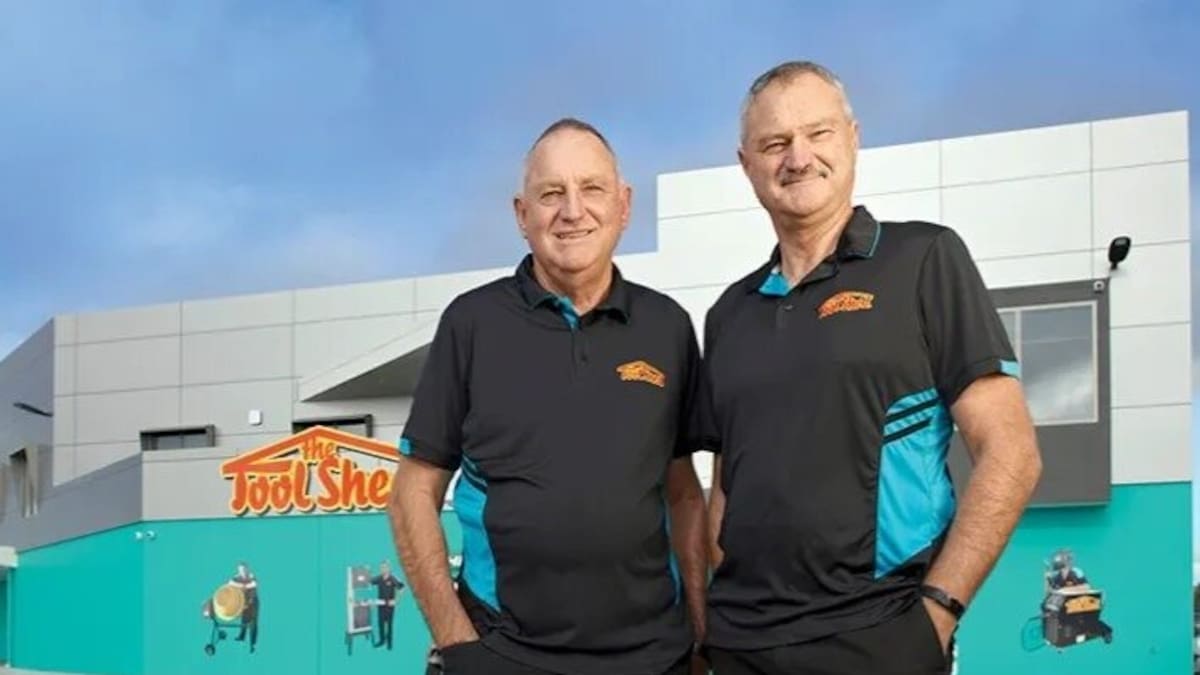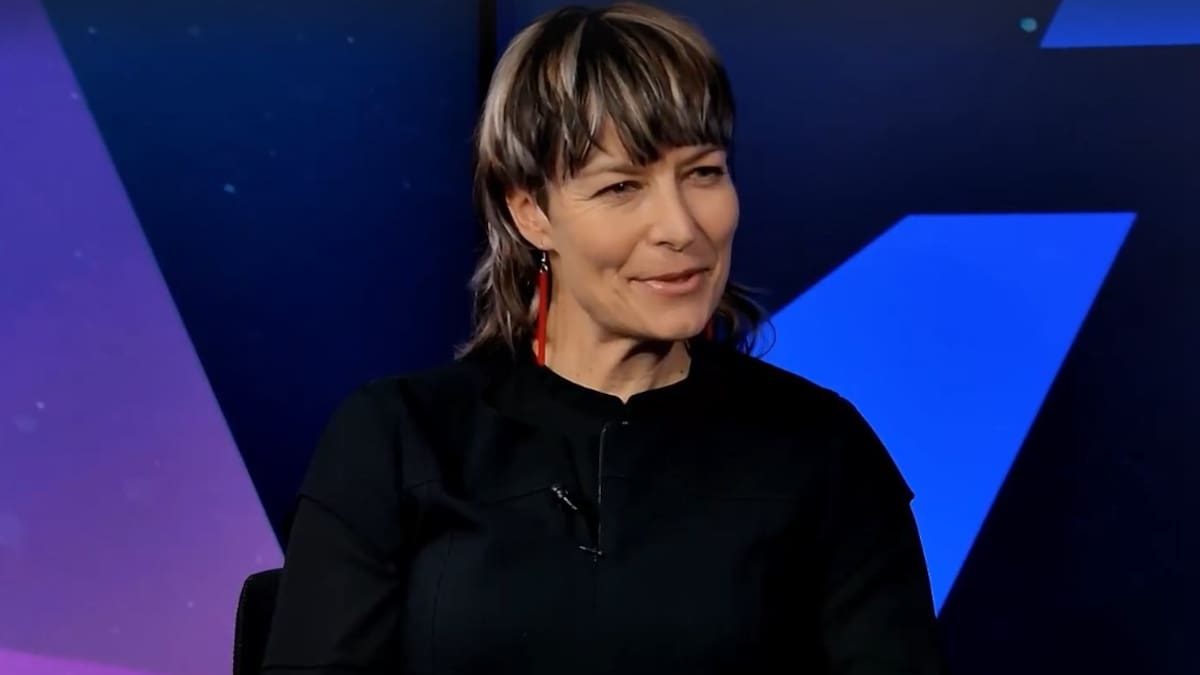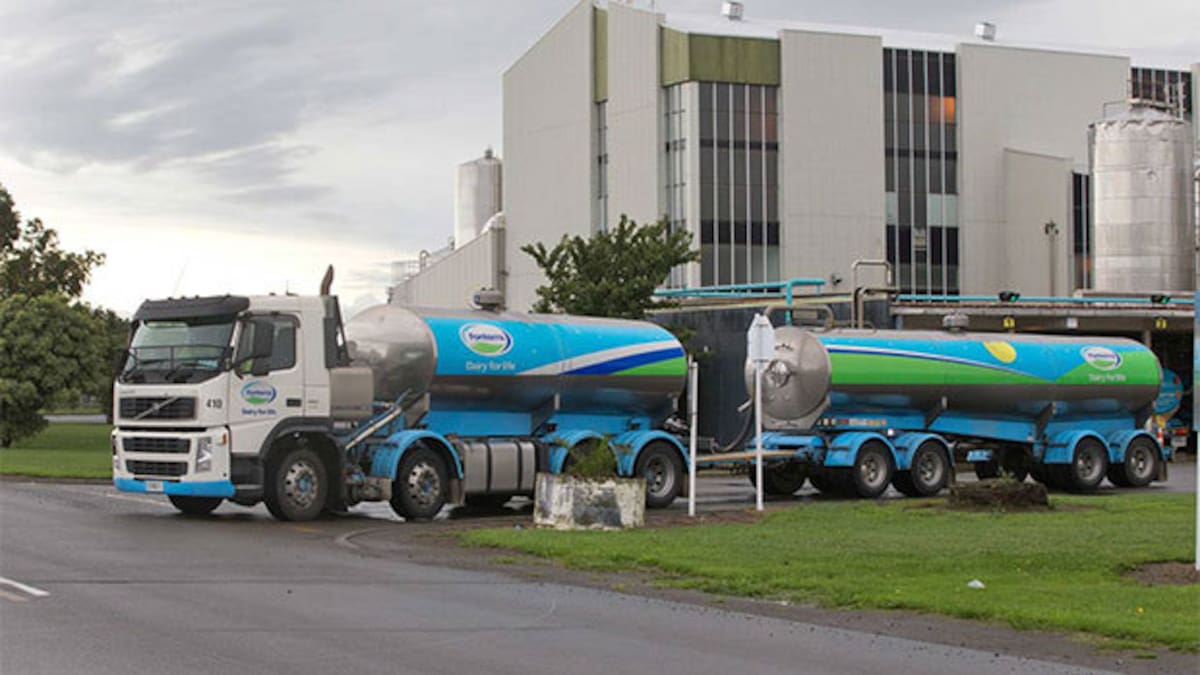A builder and carpenter by trade, Giles worked for several years building and selling houses before the news came of his father’s dilemma.
“He’d been working with this company for 17 years. He had a car and all that from the company he was with, and he was managing the company. He actually negotiated to sell the business to a company in Auckland,” Giles said.
“I just said to him, well, I’ll come to pick you up and take you home, how much money have you got? He said ‘I’ve got $5000′. I said, well, I’ve got $5000 as well, why don’t we start an opposition to this company?”
The duo began by stripping out a room in their house to store stock while creating a display to go in the back of their Ford Cortina station wagon.
Giles said they then turned to a man his father used to deal with by the name of Bill Highland. Highland had an importing company which could bring in stock from overseas.
Every month in the business’ first year, the pair turned over $1000 more than they did the month before, slowly building the Giles Industries business.
Giles’ brother Wayne, who was also a carpenter by trade, then joined the business, even selling his beloved Ford Escort to make up the funds.
“He had a bit of a gift to the gab with people and selling stuff, probably a natural gift.”
Giles also converted his building company’s CF Bedford van for the business, decking it out with tools.
It wasn’t until the economy crashed in the 1980s that things took a turn. Colin was now at retirement age, and building work had slowed up for Giles.
In a move to capitalise on what they had grown, Giles and his brother decided to join forces fulltime.
Giles focused on the retail side of the business, servicing mainly engineering suppliers before becoming a member of the Powertool Centre group, a network of retailers specialising in power tools, machinery, and accessories.
Wayne focused on the importing side. The business had been importing tools out of Taiwan at that stage, including metalworking lathes, drill presses, band saws and more.
After seven years with the Powertool Centre group, the Giles’ decided the time had come to form their own business – The ToolShed.
Now with stores across the country, the Giles family owns 24, with the other six remaining franchised operations.
At the beginning, Giles explained they had more franchised locations, but after some bad experiences with former owners, the pair decided it was better to own the stores themselves.
Over time, more of the Giles’ family has joined the business. Giles’ son Brent works as the general manager, while nephew Blair runs the import side of the business.
Giles’ sister Wendy works as the business manager (although has had input for years), with another nephew, Nathan, running online sales and niece Katie working as a graphic designer.
Giles said working with his brother for so many years had been great, but the pair had also learned to agree to disagree on issues.
“We went through some pretty hard times and we came out of them. We had to peel off staff and that was hard work, but we’ve got some really very, very good dedicated staff.”

Giles believes the family business extends beyond his own to the roughly 130 staff working for the business.
“They’ve been with us for a lot of years, and as I say to the guys, we’d like to treat you as part of the family as well.
“It’s important for us that they love their job and we love you guys. We just want to get on with it.”
Giles thinks having such an experienced workforce with in-depth knowledge of what they are selling has been the key to competing with big brands like Bunnings Warehouse and Mitre 10.
One of the lessons he remembers from his father was to be focused on what you know and do it properly.
Another key has been importing branded products directly from overseas, rather than reselling products bought in New Zealand.
“If you pull it in from the importer out of the container and then put it on the shelf and sell it, you’ve got another margin up your sleeve.
“You’ve got more control over it as far as the retail goes because you haven’t got other opposition with it either.”
The ToolShed introduced its own brand, called Truxon, last year which was another opportunity for the business to capitalise on its direct connection with manufacturers overseas.
Giving back
Now semi-retired, Giles still works as a director on The ToolShed’s board, but it’s a new passion for helping other businesses that has his interest.
From a donut dog treats business to a local hardware/building supplies business in Paeroa, Giles has been sharing his knowledge with those looking for help.
“I really enjoy mentoring, and I think it probably does as much for me as what it does for the customer or a client. What it does I think is reminds me of things I should be doing myself.”
“It gives me a bit of a thrill with some of the stories you hear, what people have gained from it.
He receives no pay, shares in a company or otherwise for his work, instead Giles is purely motivated by seeing other Kiwi companies succeed.
As for his own family’s legacy with The ToolShed, Giles said it was nice to hear about how iconic the brand has become.
“When you’re in the thick of it, sometimes you think you’re just one of the boys. The thing is you want to go out there and you want to be remembered for doing the right thing for your staff and your customers and just doing the right thing.
“I’d like to think I’ve just been part of a cog in the wheel.”
Tom Raynel is a multimedia business journalist for the Herald, covering small business, retail and tourism.





